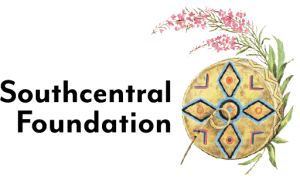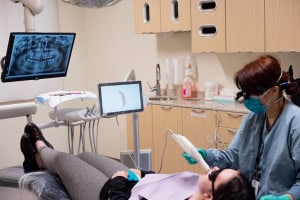Curriculum
We are proud SCF’s AGPR program has a reputation for providing residents with outstanding education in all aspects of dentistry and medicine related. SCF dental clinics use the latest state-of-the-art technology to provide exceptional care for customer-owners.
By the completion of the program, the resident will demonstrate the ability to:
- Act as a primary care provider for customer-owners and groups of customer-owners.
- Provide emergency and multidisciplinary comprehensive oral health care
- Obtain informed consent
- Provide patient-focused care that is coordinated by the general practitioner
- Direct health promotion and disease prevention activities
- Assess, diagnose, plan, and provide multidisciplinary oral health care for customer-owners including customer-owners with special care needs.
- Manage the delivery of patient-focused oral health care by applying concepts of patient and practice management and quality improvement that are responsive to a dynamic health care environment.
- Function effectively within the hospital and outpatient clinics as part of interdisciplinary health care teams.
- Apply scientific principles to learning and oral health care, including critical thinking, evidence or outcomes-based clinical decision-making, and technology-based information retrieval systems.
- Utilize the values of professional ethics, lifelong learning, patient centered care, adaptability, and acceptance of cultural diversity in professional practice.
- Understand the oral health needs of communities and engage in community service to prevent or treat oral disease.
- Provide program management, leadership, and human resource management utilizing public health principles.
- Operative Dentistry: Treat and manage care for customer-owners requiring restorations, including endodontically treated teeth, primary dentition, and techniques to enhance facial aesthetics.
- Medical Emergencies: Anticipate, prevent, diagnose, and provide initial treatment and follow-up management for medical emergencies that may occur during dental treatment.
- Evaluation and Treatment of Dental Emergencies: Provide treatment to manage intraoral, extraoral, and complex orofacial emergencies and infections.
- On-Call Duty: The AGPR training program includes participation in after-hours on-call to the community through the Alaska Native Medical Center Emergency Department. The after-hours on-call service provides residents the opportunity to treat a wide range of emergencies from dentoalveolar and maxillofacial trauma, to severe odontalgias and infections. The on-call schedule is pre-assigned, and all residents receive their on-call schedule for the entire year at the beginning of the program year.
- Didactics: The didactic series covers a wide variety of topics including internal medicine, physiology, anatomy, physical diagnosis, moderate parenteral sedation and medical emergencies, Systematic review-evidence based dentistry, ACLS, PALS, pharmacology, dental implants, basic and innovative dental procedures, literature review and practice management. We encourage residents to request presentations on topics of interest.
- Restoration of Edentulous Space: Treat and manage care for customer-owners with missing teeth requiring fixed or removable prostheses, including advanced dental implant restorations.
- Endodontic Therapy: Diagnose and treat pulpal and periapical pathology on anterior and posterior teeth, in permanent and primary dentition, and manage complications.
- Temporomandibular Disorder: Diagnose and non-surgically manage temporomandibular disorders.
- Orofacial Pain: Assess and manage facial pain.
Plan and provide comprehensive multidisciplinary oral health care
- Function as a customer-owner’s primary, and comprehensive, oral health care provider.
- Work with customer-owners in a manner that is professional, builds rapport and confidence, respects patients’ rights and dignity, puts customer-owners’ interests first, and maximizes customer-owners’ satisfaction with dental care.
- Provide dental care as a part of a health care team.
- Make referrals to, and obtain consultations from, professional colleagues for the treatment of dental, medical, psychological, and social concerns presented by dental customer-owners.
Detect, diagnose, and prevent oral disease
- Select and use assessment techniques to arrive at a differential, provisional, and definitive diagnosis for customer-owners with complex needs.
- Assess customer-owners’ cultural background and expectations for dental care and perform customer-owner care consistent with that assessment.
- Obtain and interpret clinical and other diagnostic data from dental professionals and other health care providers.
- Use the services of clinical, medical, and pathology laboratories and make referrals to other health professionals for the utilization of these services.
- Use accepted prevention strategies to help customer-owners maintain and improve their oral health and aspects of their systemic health.
Treat oral disease
- Obtain informed consent for dental treatment by discussing with customer-owners the following: findings; diagnoses; the risks, benefits, and process of various treatment options; customer-owners responsibilities during and after treatment; and estimated fees and payment responsibilities.
- Integrate multiple disciplines into individualized, comprehensive, sequenced treatment plans for customer-owners with uncomplicated and complex needs.
- Develop and carry out dental treatment plans for customer-owners, including customer-owners with special needs, in a manner that considers and integrates medical, psychological, and social needs.
- Modify the treatment plan, if indicated, based on therapeutic outcomes, unexpected circumstances, or individual needs.
Periodontal Therapy
- Diagnose, manage, and treat periodontal disease, from early to advanced disease, using nonsurgical and surgical procedures.
- Evaluate the results of periodontal treatment and establish periodontal maintenance program.
Oral Surgery
- Perform surgical and nonsurgical extraction of teeth, including third molars and pre-prosthetic surgery.
- Treat customer-owners with complications related to intraoral surgical procedures.
- Manage the surgical component of dental implant systems and complications.
Pain and anxiety control utilizing behavioral or pharmacologic techniques
- Provide control of pain and anxiety in the conscious patient through the use of psychological interventions, behavior management techniques, local anesthesia, and oral and nitrous oxide conscious sedation techniques.
- Use pharmacologic and non-pharmacologic behavior management with pediatric customer-owners.
- Prevent, recognize, and manage complications related to use and interactions of drugs, local anesthesia, and conscious sedation.
Orthodontics
- Recognize, diagnose, and manage orthodontic treatment for children.
- Treat minor occlusal abnormalities and arch space problems using space maintenance and other orthodontic appliances.
Oral Pathology
- Diagnose, manage, and biopsy (if indicated) oral pathological abnormalities.
- Diagnose and manage oral manifestations of systemic disease.
Management of Inpatients and Surgery
- The resident will gain training and experience in the following areas:
- Reviewing medical histories and physical examinations.
- Prescribing treatment and medication.
- Providing care in the operating room.
- Preparing the customer-owners record, including notation of medical history, review of physical examination, pre- and post-operative orders, and description of surgical procedures.
- Inpatient and surgery experiences will be included in the quarterly resident report, with an emphasis on the objectives listed above.
Practice Management, Leadership, and Public Health
- The resident will receive training in dental practice management, leadership and public health administration in order to prepare graduates for senior positions within Indian Health Service dental clinics. This consists of focused contact time with senior leadership, didactic sessions, and practical exercises in structured learning activities, addressing the following topics:
- Management of allied dental professionals / office personnel
- Quality management and continuous quality improvement
- Principles of peer review
- Business management and practice development
- Principles of professional ethics
- Jurisprudence and risk management
- Alternative health care delivery systems
- Informational technology
Hospital Organization and Processes
- The resident will gain an understanding of hospital organization and functioning, including medical staff bylaws and hospital committees.
- Become familiar with the credentialing process and the process for application for privileges.
- Understand hospital records protocol.
- Understand the responsibilities of dentists as members of the medical staff.
- Become familiar with the standards and evaluation protocols for The Joint Commission and the Centers for Medicare and Medicaid Services.
Community Service
- The resident will advocate for and participate in community programs to improve access to oral health care and prevent or reduce the incidence of oral disease.
- Dental Field Trip
- The resident will provide examinations, preventive services, basic restorative services, urgent dental care, and customer-owner education presentations in a rural community setting.
- The resident will coordinate logistical and travel arrangements, including contacting the school, preparing the mobile dental equipment, and distributing health history and consent forms.
- Additional community outreach experiences
- University of Alaska Anchorage Dental Days
- Mission of Mercy
- Presentations at schools, health care centers, or with other civic groups
- Dental Field Trip

